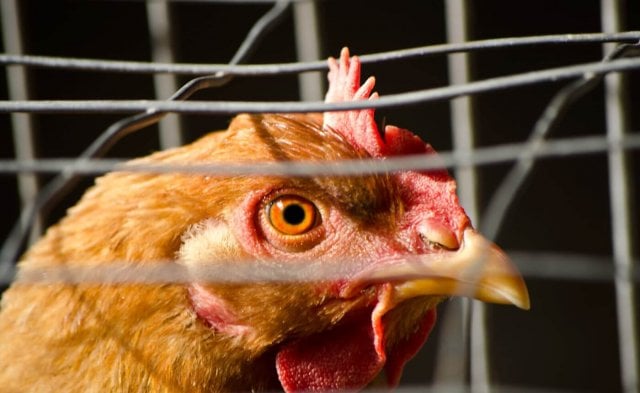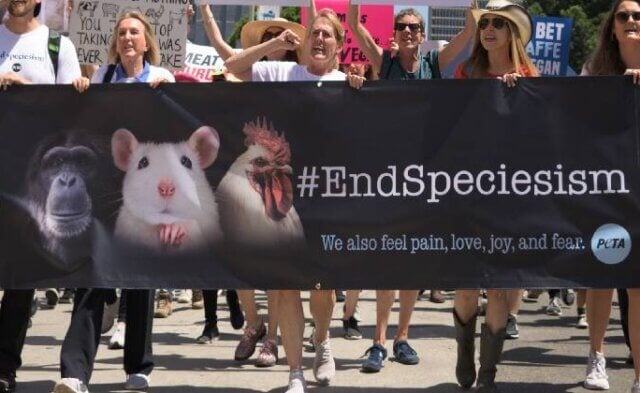By Kathy Guillermo
Before the end of this year, the Senate will vote on the nomination of Dr. Monica Bertagnolli to become director of the National Institutes of Health. If confirmed, she faces a dire situation: The life expectancy of Americans has dropped to 76.4 years — the lowest in two decades and below that of all other high-income nations.
How Bertagnolli does her job will affect hundreds of millions of Americans, so it is imperative that she pay attention to what hasn’t worked. At the top of the failure list is animal experimentation.
As the biggest funder of basic research in the world, NIH has funneled a disproportionate amount of its budget into experiments on animals. Studies have shown for a decade that 90% of basic research, most involving animals, fails to lead to treatments for humans. Yet NIH spends nearly half its budget on animal studies.
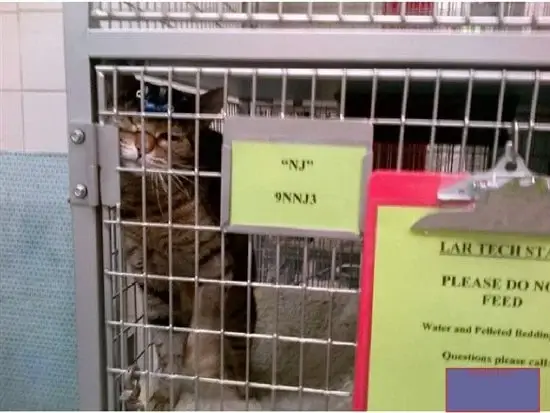
Bertagnolli must not ignore this. NIH’s basic research is supposed to provide data that lead to the development of new therapies for human disease. Yet the agency seems to pay no attention to the failure rates. A staggering 95% of new medications that appear safe and effective in tests on animals go on to fail in human trials.
The failure rate of new drugs developed using animals in many specific disease research areas is even higher. To name just a few:
- HIV vaccine — 100% failure
- Strokes — 100% failure
- Alzheimer’s disease — 99.6% failure
- Cancer — 96.6% failure
But NIH continues to throw our good tax money after bad research. Even in its own laboratories outside Washington, D.C., the agency is brain-damaging monkeys and then frightening them with plastic snakes and spiders. Elsewhere, NIH has recently funded experiments on alcohol and human infidelity — but in tiny voles, who were coerced to consume the equivalent of 15 bottles of wine a day.
The agency funds experimenters who repeatedly electroshock the feet of mice and cut into beagles to create strokes. NIH even funded a study on sex and power in advertising — using monkeys.
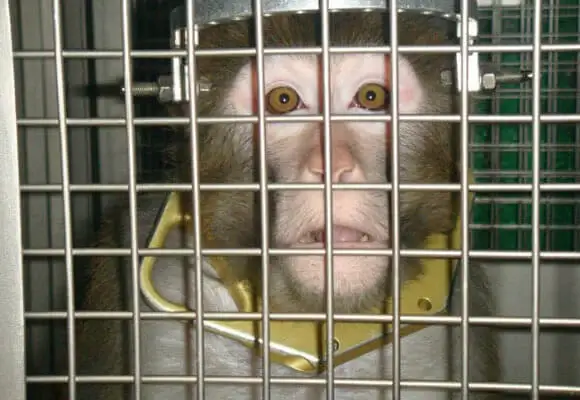
People for the Ethical Treatment of Animals (PETA) is taking NIH to court over its funding of animal experiments in the critical area of sepsis research. Sepsis — the body’s extreme response to an infection — develops when the chemicals that the body releases to fight off an infection cause inflammation throughout the entire body instead. Sepsis affects at least 1.7 million adults in the U.S. each year, killing nearly 270,000 of them.
In a landmark 2013 study, 39 researchers from Stanford University, Harvard University and other institutions found that when it comes to serious inflammatory conditions such as sepsis, burns and trauma, results from mice can never be applied to humans because of their vastly different genetic responses.
Francis Collins, then-director of NIH, acknowledged the time and resources wasted on sepsis experiments on mice. He called the catastrophe — in which 150 drugs successfully treated sepsis in mice but failed in human trials — a “heartbreaking loss of decades of research and billions of dollars.”
Yet NIH is right now funding approximately $115 million in sepsis studies on mice.
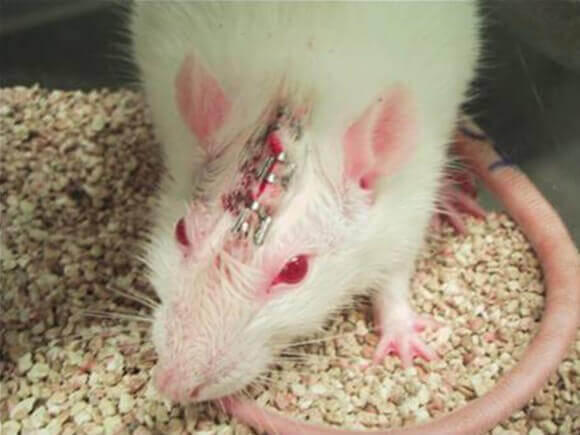
Why would NIH continue to dole out grants for experiments that don’t help humans? There are many reasons, including too many animal experimenters choosing who receives funding, an allegiance to an old paradigm, failure to act on the most current information and the failure of scientific journals to acknowledge the success and relevance of better, animal-free research.
There is a way out of this quagmire. PETA scientists have developed the Research Modernization Deal, which provides evidence of the failure of animal experiments and lays out a strategy for transitioning to human-relevant methods, including 3-D tissue models, computer modeling, the use of artificial intelligence, organs-on-a-chip and more.
Congress must compel Bertagnolli, or whoever ultimately leads NIH, to stop funding what doesn’t work, embrace the strategy of the Research Modernization Deal and move the U.S. from near the bottom to the top of the life expectancy list.
Kathy Guillermo is Senior Vice President of Laboratory Investigations at People for the Ethical Treatment of Animals; www.peta.org.


